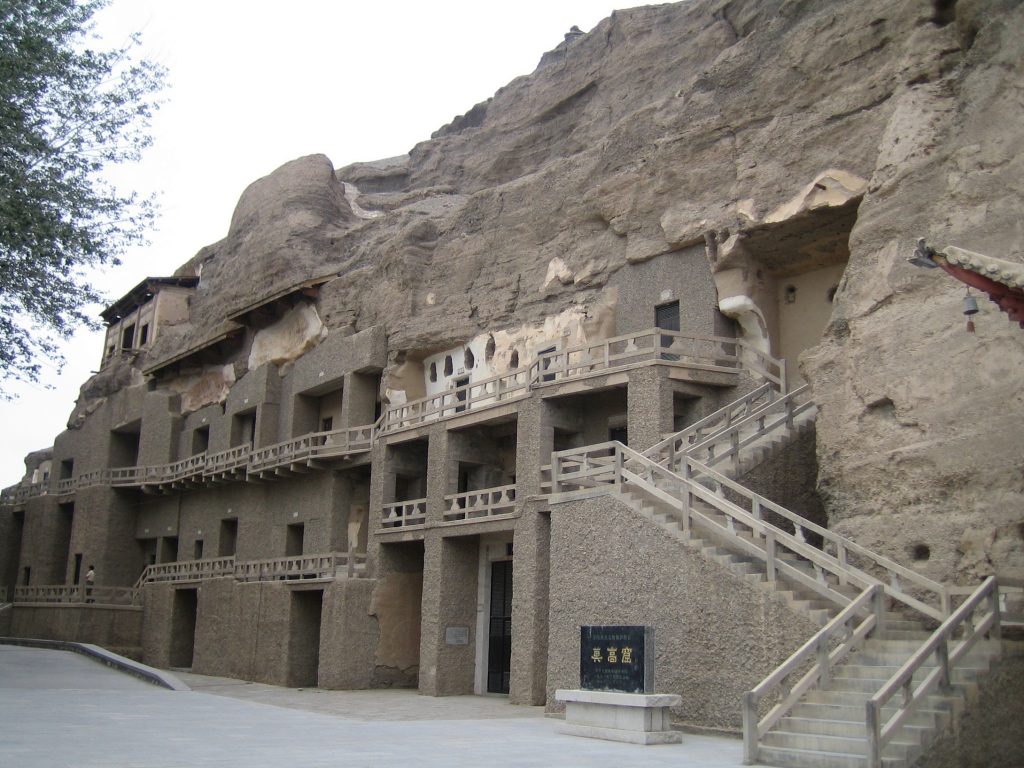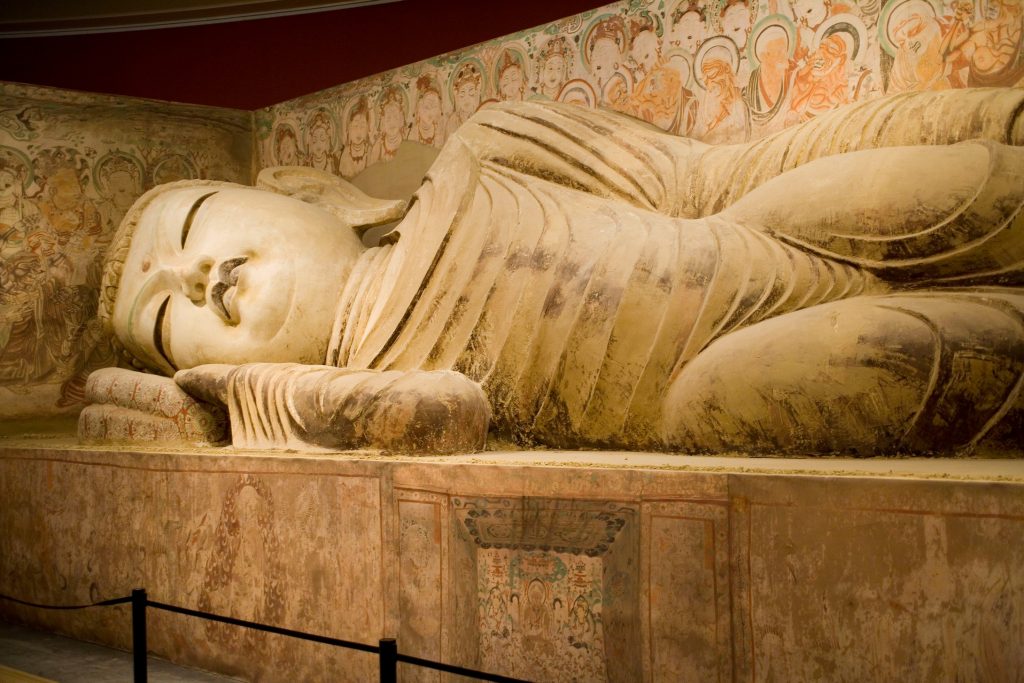Mogao Grottoes are located precipice at on the east foot of the Mingsha Hill. First dug in 366 A.D., Mogao Grottoes is one of three noted grottoes in China for its fabulous frescos and statues. And in December 1987the Mogao Grottoes have been included into the List of the World Cultural Heritages by the UNESCO.
Today, the total number of Mogao Grottoes is 492 in which there are over 2,800 sculptures and 45,000 square meters of murals. There are five grottoes with a wooden structure. The Mogao Grottoes is the largest, oldest and the best-preserved Buddhist grottoes with the richest contents in the world today.
The construction of the Mogao Grottoes began in the period of the Sixteen Kingdoms (about 366 A.D.), and the endeavor continued through the later dynasties, including the North Dynasty, Sui, Tang, Five Dynasties, Western Xia and Yuan. Today, the grand dimension of the site is shown by 735 caves, with murals covering 45,000 square meters and colored clay statues 2,415 square meters. It is the largest and richest extant treasure house of Buddhist art in the world.
In modern times, the Cave of Buddhist Scriptures was accidentally discovered and the Mogao Grottoes re-attracts attention from all over the world. Tragically, a large amount of rare scriptures were stolen. A new branch of international studies, the Dunhuang Studies, has come into being for the research on scriptures of this cave and Dunhuang’s art.
The painted clay figures and the murals in Mogao Caves came into being at the same time. The ensuing thousand years witnessed their recreation, perfection as well as absorption of the merits of western ancient arts from India, Greece, Iran etc on the national basis. It has become a brilliant pearl in the Chinese art treasure troves.
Best Time to Visit
Every year from May to October is the best time of Dunhuang tourism. Dunhuang is in the inland, cut off by mountains to keep away from the moist ocean air, where belongs to extremely dry continental climate with annual average temperature of 9.3 ℃. It is dry with little rain all the year round, day and night temperature difference is big.
How to get there
Mogao grottoes are 25 km away from Dunhuang city of its south.
【By bus】
Tourists can take countryside bus in front of Shazhou market from Dunhuang, 8 Yuan for one way.
Departing at 8:30 in the morning to 7 or 8 in the afternoon, and leave at a regular intervals of half an hour.
Travel Tips
Dunhuang belongs to the polar climate dry continental climate with annual average temperature of 9.3 ℃. In July the average temperature is 24.7 ℃, and the average temperature is 9.3 ℃ in January. It is dry with little rain all the year round; day and night temperature difference is big. Every spring here is the dry-hot wind and black sandstorm two natural disasters, if visiting Dunhuang at this time, you should do some preparations before going.
1. In order to protect the murals in the Mogao Grottoes, during visit tourists can only be viewed with a flashlight, each tour guide will bring with a flashlight. If you want to have better view, you can bring a flashlight with three batteries. It is recommended to use luminescence flashlight.
2. Due to various cameras flash gun will harmfully destroy cultural relics, please make sure that don’t bring the camera into the Mogao grottoes. In order to protect the treasure of the Chinese nation, thank you for everyone’s cooperation! When faced with bad weather such as rain and snow sand Mogao Grottoes Scenic Spot will be closed.
3. Suggesting going to the Mogao Grottoes in the morning, because the entrance of Mogao Grottoes is toward east, the sun light up the grottoes and make it shining which is very sacred.


